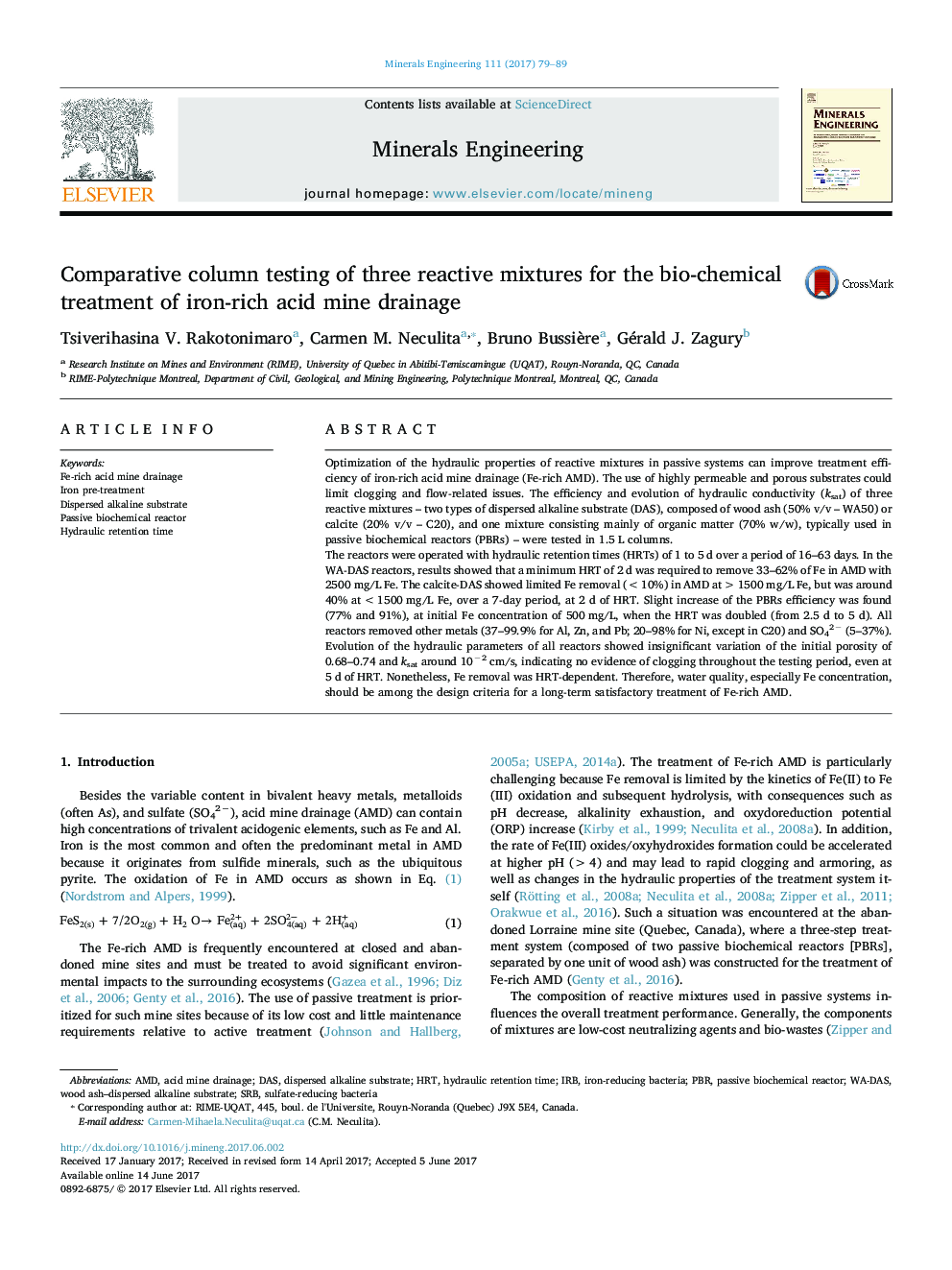| Article ID | Journal | Published Year | Pages | File Type |
|---|---|---|---|---|
| 4910168 | Minerals Engineering | 2017 | 11 Pages |
Abstract
The reactors were operated with hydraulic retention times (HRTs) of 1 to 5 d over a period of 16-63Â days. In the WA-DAS reactors, results showed that a minimum HRT of 2 d was required to remove 33-62% of Fe in AMD with 2500Â mg/L Fe. The calcite-DAS showed limited Fe removal (<10%) in AMD at >1500Â mg/L Fe, but was around 40% at <1500Â mg/L Fe, over a 7-day period, at 2 d of HRT. Slight increase of the PBRs efficiency was found (77% and 91%), at initial Fe concentration of 500Â mg/L, when the HRT was doubled (from 2.5 d to 5 d). All reactors removed other metals (37-99.9% for Al, Zn, and Pb; 20-98% for Ni, except in C20) and SO42â (5-37%). Evolution of the hydraulic parameters of all reactors showed insignificant variation of the initial porosity of 0.68-0.74 and ksat around 10â2Â cm/s, indicating no evidence of clogging throughout the testing period, even at 5 d of HRT. Nonetheless, Fe removal was HRT-dependent. Therefore, water quality, especially Fe concentration, should be among the design criteria for a long-term satisfactory treatment of Fe-rich AMD.
Keywords
Related Topics
Physical Sciences and Engineering
Chemical Engineering
Chemical Engineering (General)
Authors
Tsiverihasina V. Rakotonimaro, Carmen M. Neculita, Bruno Bussière, Gérald J. Zagury,
